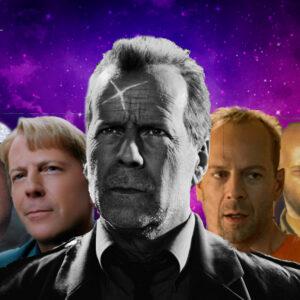Emilia Clarke, widely celebrated for her portrayal of Daenerys Targaryen in HBO’s epic fantasy series Game of Thrones, steps into a new realm with her role in the sci-fi drama The Pod Generation. This film, set in a near-future world where technology has deeply intertwined with human experiences, presents Clarke with a set of challenges that are both novel and profound. Unlike her previous roles, Clarke’s performance in The Pod Generation demands a complex and multifaceted approach that explores the intersection of technology, human emotion, and ethical dilemmas. In this article, we delve into the unique on-screen struggles Clarke faced and how these challenges shaped her performance.
1. The Futuristic Setting and Its Impact
The Pod Generation is set in a speculative future where societal norms and personal experiences are significantly altered by technology. The film envisions a world where human reproduction is mediated by technological advancements, and Clarke’s character navigates these futuristic changes while grappling with deeply personal and existential questions.
1.1 Immersing in a Futuristic Reality
Adapting to a future world posed a unique challenge for Clarke. Unlike the medieval fantasy setting of Game of Thrones, where the environment is somewhat fantastical yet rooted in historical tropes, the world of The Pod Generation is deeply grounded in the potential realities of technological progress. Clarke had to immerse herself in this speculative future, understanding the nuances of a world where technology dictates personal and social interactions.
To effectively portray her character, Clarke needed to grasp the implications of the film’s futuristic setting on human relationships, identity, and ethics. This required extensive research and a deep engagement with the script’s technological and societal constructs.
1.2 Navigating Technology’s Influence on Human Experience
In The Pod Generation, technology isn’t just a backdrop; it shapes the essence of human experiences. Clarke’s character encounters technology that affects reproduction and personal choices in ways that challenge traditional notions of identity and autonomy. This required Clarke to explore and embody the psychological and emotional impacts of living in a world where technology blurs the lines between natural and artificial.
2. Character Complexity and Emotional Depth
Clarke’s role in The Pod Generation demands a level of emotional complexity and nuance that extends beyond her previous performances. Her character is not just navigating a futuristic world but also dealing with deeply personal struggles and ethical dilemmas.
2.1 Balancing Technological and Human Elements
One of the main challenges Clarke faced was balancing the technological aspects of her character’s world with the human emotions she needed to convey. Her role required her to present a character who is both a product of a futuristic society and an individual with genuine emotions and conflicts. Clarke had to navigate this duality, ensuring that her portrayal was both believable and compelling.
2.2 Portraying Ethical and Existential Dilemmas
The film’s exploration of ethical dilemmas related to technology and reproduction presented Clarke with a significant acting challenge. Her character confronts questions about the nature of human experience, autonomy, and the implications of technological intervention in personal lives. Clarke’s ability to convey these complex emotions and philosophical concerns required a deep dive into the psychological aspects of her role, pushing her to explore new depths in her acting range.
3. The Physical and Psychological Demands
Acting in a film like The Pod Generation involves more than just emotional and intellectual preparation; it also demands physical and psychological endurance. Clarke’s role required her to adapt to various physical and psychological conditions that were unique to the film’s setting.
3.1 Adapting to Futuristic Technology
The film’s futuristic technology is central to the plot and Clarke’s performance. This involved working with advanced special effects and adapting to a digital environment that often requires actors to use their imagination to visualize and interact with elements that are not physically present. Clarke had to maintain a high level of concentration and adaptability to effectively interact with the technological aspects of the film.
3.2 Emotional and Psychological Strain
The psychological demands of Clarke’s role were significant. She had to portray a character dealing with profound personal and societal changes, which involved a deep emotional engagement. Clarke’s ability to convey the psychological strain of living in a technologically dominated world, while maintaining a coherent and empathetic portrayal, was a crucial aspect of her performance.
4. Collaborating with the Creative Team
Working on The Pod Generation required Clarke to collaborate closely with a diverse and talented creative team. This collaboration was essential for bringing the film’s unique vision to life and overcoming the challenges of portraying a futuristic world.
4.1 Working with Directors and Writers
The film’s directors and writers played a crucial role in shaping Clarke’s performance. Their vision for the film, combined with Clarke’s own interpretation of her character, created a dynamic process of collaboration and adjustment. Clarke had to work closely with the creative team to ensure that her portrayal aligned with the film’s broader thematic and narrative goals.
4.2 Interacting with Co-Stars
Clarke’s interactions with her co-stars were also a key aspect of her performance. The dynamic between characters in a film like The Pod Generation is essential for creating a believable and engaging story. Clarke’s ability to effectively interact with her co-stars, navigating both the emotional and technological aspects of the script, was vital for the film’s success.
5. Public and Critical Reception
As with any significant role, Clarke’s performance in The Pod Generation was met with varied public and critical reactions. The film’s unique premise and Clarke’s challenging role garnered attention and sparked discussions about the intersection of technology and human experience.
5.1 Audience Reactions
The audience’s reaction to Clarke’s performance was shaped by their engagement with the film’s futuristic themes and her portrayal of a complex character. Viewer responses varied, with some praising Clarke’s ability to navigate the film’s challenges, while others focused on the film’s speculative nature and its impact on audience perceptions.
5.2 Critical Analysis
Critics evaluated Clarke’s performance within the context of the film’s ambitious vision and technological themes. The critical reception highlighted her ability to handle the unique challenges of the role, as well as the film’s exploration of ethical and existential questions. Clarke’s performance was often noted for its depth and emotional resonance, contributing to the film’s overall impact.
Conclusion
Emilia Clarke’s role in The Pod Generation represents a significant departure from her previous work, presenting her with a range of unique challenges and opportunities. The film’s futuristic setting, complex character dynamics, and technological themes required Clarke to stretch her acting abilities in new and demanding ways. Through her performance, Clarke navigated the intersection of technology and human emotion, delivering a portrayal that is both thought-provoking and deeply resonant.
The struggles Clarke faced in bringing her character to life reveal the complexities of working in a genre that blends speculative fiction with profound ethical and emotional questions. Her ability to adapt to these challenges and deliver a compelling performance underscores her versatility as an actress and her commitment to exploring new and innovative roles. The Pod Generation stands as a testament to Clarke’s talent and her capacity to tackle roles that push the boundaries of conventional storytelling.





